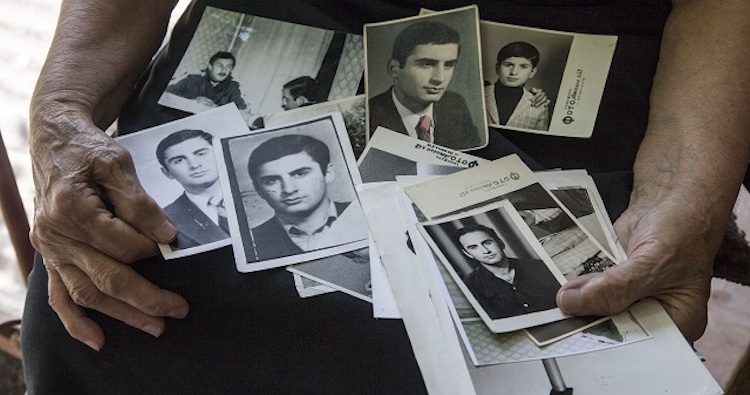29 years have passed since armed conflict in Georgia’s Russian-occupied Abkhazia

Thirteen bodies (of the people who went missing during the 1992-93 conflict) who were found back in 2017-2018 in Abkhazia region have been identified last year. Photo: Nino Alavidze/Agenda.ge.
Today Georgia is commemorating the 29th anniversary of the Abkhazia War, which ended with the area becoming a breakaway region of Georgia and leaving hundreds of thousands displaced.
In recognition of the date Georgian Prime Minister Irakli Garibashvili said that 'historical justice will be restored and Georgia will definitely be united'.
Through peace and development, together with our Abkhaz and Ossetian brothers, we will create a strong, developed state that is attractive to each of its citizens, where everyone has the opportunity to maintain their identity, prosperity and development in the face of ethnic, religious and cultural diversity", posted Garibashvili on his Facebook page.
What happened 29 years ago?
The armed conflict began on August 14,1992 when Georgia's Armed Forces aimed to defend the Sochi-Enguri section of the railway and were confronted by Abkhaz Gvardia [armed forces].
The Abkhaz militant group involved Russian soldiers and was created under the order of the head of the Supreme Council of Abkhazia, Vladislav Ardzinba, near Okhurei Village in Ochamchire district.
In response, the State Council of Georgia decided to send the National Gvardia [another soldier unit controlled by Tbilisi] to Abkhazia to challenge the militant group. This confrontation sparked the beginning of hostilities on the ground.
On July 27, 1993 both sides agreed to the ‘Sochi Agreement on Ceasefire and Separation of Forces’ however about two months later, on September 16, 1993, the Abkhaz violated the ceasefire agreement and began an attack on Sokhumi.
The Abkhaz-Russian forces started their attack on the building of the Council of Ministers of Abkhazia in the morning of September 27, 1993. They captured and killed Chairman Zhiuli Shartava, Sokhumi Mayor Guram Gabeskiria and 27 employees of the Council of Ministers.
On the same day Sokhumi collapsed and the Georgian Armed Forces lost the fight, leading to the end of the war.
Between 13,000 to 20,000 ethnic Georgians and approximately 3,000 Abkhaz have been reported killed, more than 250,000 Georgians became internally displaced or refugees and about 2,000 are considered missing.
Among the missing about 1,500 are ethnic Georgians, up to 200 are ethnic Abkhaz and about 100 are ethnic Ossetians.
 Tweet
Tweet  Share
Share